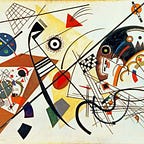Mathematics in Real Life: Conditional Probability
One of my pet peeves as someone trained in mathematics is the belief that probabilities, especially those derived experimentally from statistics, are dogma. This is commonly encountered/is similar to the gambler’s fallacy. Simply put, the gambler’s fallacy is the belief that certain outcomes are bound to happen just because they have not come to pass in recent history. For example, in roulette, one might assume that if black has come up 20 times in a row, then red is required to present soon. As is implied in the name gambler’s fallacy, this is incorrect. No matter what has happened prior to the current event, the probabilities for the next outcome are the same regardless of the prior events. Mathematically, this is known as independence: the color of the next number is independent of the color of the previous numbers, i.e. random. But randomness has a more nuanced definition/understanding in mathematics. The common understanding is that random events must be uninfluenced by outside forces. This is slightly incorrect, whereas in mathematics one event could depend on other forces but still be considered random. Think of it this way, if your friend recommends one movie over the other, you are certainly influenced by their advice, but the final choice is still yours. Dependent random events are similar.
Allow me abstract a little bit, but still keep it physical. Imagine that we play a game where you first flip a coin. If heads shows up, then you get one die, and if tails then you get two. Then you roll the die or dice that you have and find out how many dollars you win. Let the winnings be the number of dollars you bet multiplied by the number of pips on the dice. What’s the chance that you roll a six? Here you hopefully see that the chance of rolling a six is dependent on whether you have one or two dice. Still, though, once you have flipped the coin, the dice roll is completely random. You cannot control the outcome or fall of the dice other than by tossing them.
Here we enter conditional probability. Before you flip the coin we would say that any discussion of the dice roll is unconditional. We can talk about the dice conditioned on a head or tail, and in this we can make a determination of what might happen. After we flip the coin we can also talk about the dependent probability of a given roll depending on which side of the coin came up.
Without getting too technical, this all centers around the fact that more knowledge and information allows us to make better decisions. On average its best to get an hour of exercise a day. But if the person you’re talking to has a weak heart, you might reconsider your advice. Just because something is best on average doesn’t mean it applies in a given situation. To paraphrase with some pause, Nassim Taleb says never cross a river that on average is three feet deep. The implication is that there are several areas that are merely inches deep, but unless the entire river is constantly three feet deep, you can be certain there are areas in which you would be in danger of drowning.
I focus on conditional probability tonight because it has been circling in my head since I finished my grad program. Ever since I really studied probability and randomness, I’ve started to see it everywhere. Everything is essentially random, and it’s pitiful how little we have in our control.
As I was showering tonight, and as often happens, I had particular thoughts about receiving advice. It fascinates me sometimes that we can ask advice from one trusted source and turn to another and receive nearly completely opposite advice. It simply stands to confuse everyone, and leads to paralysis by analysis. How then are we to get anywhere when there is no consensus? How can we make a decision either way when the opposite opinions cancel each other out?
This is where I began to think of conditional probability. Each person’s advice wasn’t unbiased, or in math-speak unconditional. Their recommendations come with some qualifiers and to best understand the data or observations, we need to account for these variables. A good job to one person might be a shit job based on the unique circumstance that each person finds themself in. This is what we call conditioning. For my mom a good job is stable, low risk, not social climbing, and pays enough to keep the lights on while being something that keeps her busy. To me a good job is so much more. I need challenge, ambition, competition, and high growth potential. Making a recommendation to either of us without thinking about the conditioning would lead to a suboptimal situation for both. More math speak for not being quite right.
Most people think math is about addition, subtraction, and all that. Being a mathematician, I can say that I suck at those operations. I’m looking forward to exposing the other sides of math outside of basic computation and calculation. Hopefully, I can show Mathematics in Real Life.
